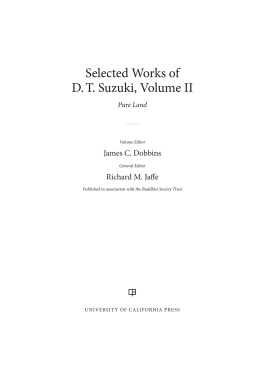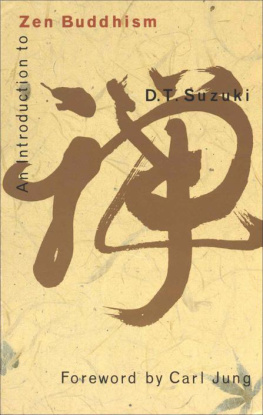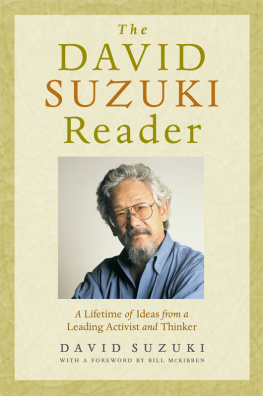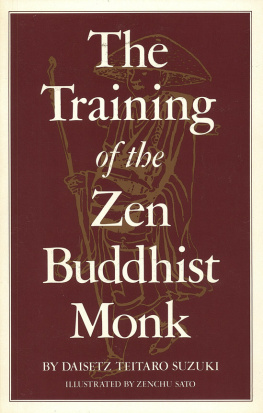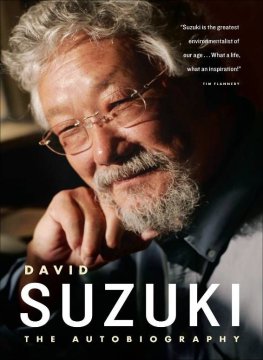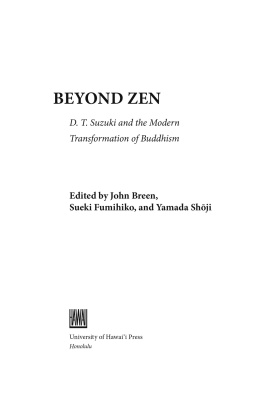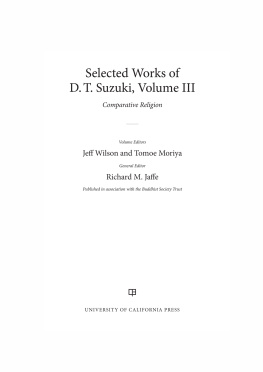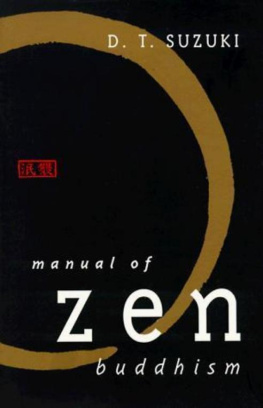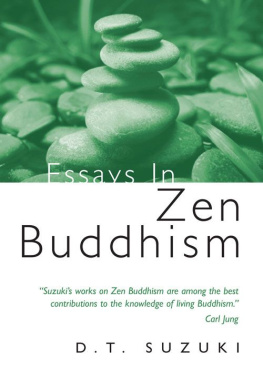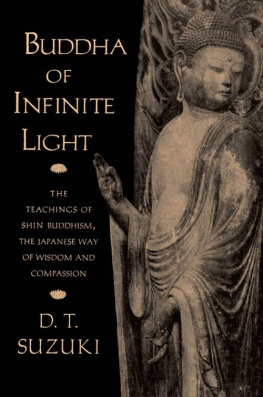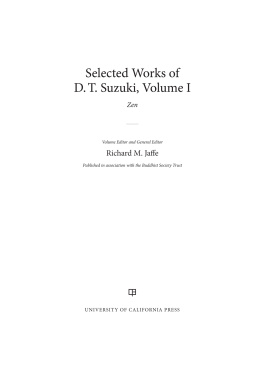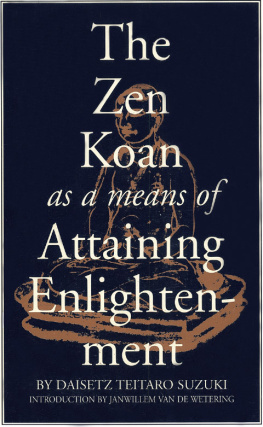Published in association with the Buddhist Society Trust.
The publisher gratefully acknowledges the generous contribution to this book provided by the Japan Foundation.
The publisher gratefully acknowledges the generous contribution to this book provided by the Great Britain Sasakawa Foundation.
The publisher gratefully acknowledges the generous support of the Humanities Endowment Fund of the University of California Press Foundation.
Selected Works of D. T. Suzuki, Volume II
Selected Works of D. T. Suzuki, Volume II
Pure Land
Volume Editor
James C. Dobbins
General Editor
Richard M. Jaffe
Published in association with the Buddhist Society Trust

UNIVERSITY OF CALIFORNIA PRESS
University of California Press, one of the most distinguished university presses in the United States, enriches lives around the world by advancing scholarship in the humanities, social sciences, and natural sciences. Its activities are supported by the UC Press Foundation and by philanthropic contributions from individuals and institutions. For more information, visit www.ucpress.edu.
University of California Press
Oakland, California
2015 by The Buddhist Society Trust as agent for the Matsugaoka Library
Foundation; and James C. Dobbins
Frontispiece: Namu Amida Butsu (I take refuge in Amitbha Buddha). Calligraphy by Suzuki Daisetsu. Courtesy of the Matsugaoka Bunko.
Library of Congress Cataloging-in-Publication Data
Suzuki, Daisetz Teitaro, 18701966, author.
[Works. Selections. English. 2014]
Selected works of D. T. Suzuki / edited by Richard M. Jaffe.
volumes cm.
Includes bibliographical references and index.
Contents: Volume 1. Zen.Volume 2. Pure Land.
ISBN 978-0-520-26919-4 (cloth : v. 1) ISBN 978-0-520-26893-7 (cloth : v. 2) ISBN 978-0-520-95961-3 (ebook : v. 1) ISBN 978-0-520-95962-0 (ebook : v. 2)
1. Suzuki, Daisetz Teitaro, 18701966Translations into English. 2. Zen Buddhism. I. Jaffe, Richard M., 1954 editor of compilation. II. Title.
BQ 9266. S 93 2014
294.3927dc232014012088
Manufactured in the United States of America
24 23 22 21 20 19 18 17 16 15
10 9 8 7 6 5 4 3 2 1
In keeping with a commitment to support environmentally responsible and sustainable printing practices, UC Press has printed this book on Natures Natural, a fiber that contains 30% post-consumer waste and meets the minimum requirements of ANSI/NISO Z 39.481992 ( R 1997) ( Permanence of Paper ).
CONTENTS
ACKNOWLEDGMENTS
When I embarked on this project, my knowledge of D. T. Suzuki was limited largely to several of his writings that I had read casually and uncritically early in my career. Hence, I faced a challenge equipping myself with a sufficient understanding of his life, thought, historical circumstances, and intellectual climate to undertake this work. I am indebted to my home institution, Oberlin College, for providing a sabbatical leave in 20102011 during which this project was begun. I am equally grateful to Otani University in Kyoto, where Suzuki was a professor, for hosting me during that year, and to its Shinsh Sg Kenkyjo and The Eastern Buddhist office, which provided additional support. Special thanks also go to Norman Waddell, who updated his translation of excerpts from Suzukis Japanese Spirituality (Nihon teki reisei) that appear in this volume, and to the American Buddhist Studies Center in New York and its president, Hoshina Seki, for permission to publish Suzukis public talk of September 11, 1955. I would also like to thank Caroline Chen who, supported by Oberlin College, assisted me in the early production of the manuscriptcreating electronic versions of Suzukis essays, making the first wave of editorial changes to them, and producing preliminary versions of Japanese, Chinese, and Sanskrit glossaries. In addition, I want to express appreciation to the Matsugaoka Bunko for permission to publish Suzukis essays. There are also several organizations who provided financial support for the production of this volume and of the series in general: the Buddhist Society of London; Duke Universitys Asian-Pacific Studies Institute and Trinity College of Arts and Sciences; the Japan Foundation of New York (through a grant to the Triangle Center for Japanese Studies) and the Japan Foundation of Los Angeles; Mr. Luke Ding; and the Great Britain Sasakawa Foundation. Finally, I must acknowledge the expertise and help of Wayne Yokoyama and Richard Jaffe who became frequent conversation partners concerning Suzuki and who offered valuable suggestions and information at all stages of the project. And of course I wish to thank my wife Suzanne Gay for her patience and support throughout the process.
INTRODUCTION
Suzuki Daisetsu Teitar (18701966), known popularly in the West as D. T. Suzuki, is famous for his writings on Zen, but he also had a long and abiding interest in Pure Land Buddhism, particularly Jdo Shinsh, or Shin Buddhism. This interest arose from a combination of circumstanceshis upbringing in Kanazawa, his encounter with various Pure Land adherents and thinkers, and his appointment at Otani, a Shin Buddhist universitybut it also stemmed from his own curiosity, both intellectual and religious. From the time he began writing and throughout his publishing life, Suzuki wrote about Pure Land repeatedly, and during certain phases of his career he concentrated on it heavily. Some people think that in the last decade or two of his life Suzuki was more attracted to Pure Land Buddhism than to Zen. This may be wishful thinking though, for Zen always held a special place in Suzukis heart, epitomizing for him the essence of Buddhism. But Pure Land Buddhism was never far behind, for he considered it the complement of Zenthe other side of the Buddhist coin, so to speak. Just as he gave Zen a unique and powerful interpretation in the modern world, likewise he gave Pure Land a distinctive reading. It is Suzukis interpretation of Pure Land Buddhism that I would like to explore here. In doing so, my goal is to historicize Suzukithat is, to situate him amid the intellectual and historical trends of his times, for he was both a product of them and a contributor to them.
Suzuki emerged as a well-known public intellectual in the last two decades of his long life. In the 1950s, while he was living in America, he was catapulted to fame as a world-renowned authority on Buddhism. With fame in the West came fame in Japan, where he thence received greater adulation than he ever had earlier in his career. In some ways Suzuki was an unlikely candidate to become such a But as an outsider, Suzuki could march to his own drum, unafraid to be daring in his thinking. As a result, his work on Pure Land Buddhism was oft en eye opening, sometimes idiosyncratic, and ultimately influential in both Japan and the West.

